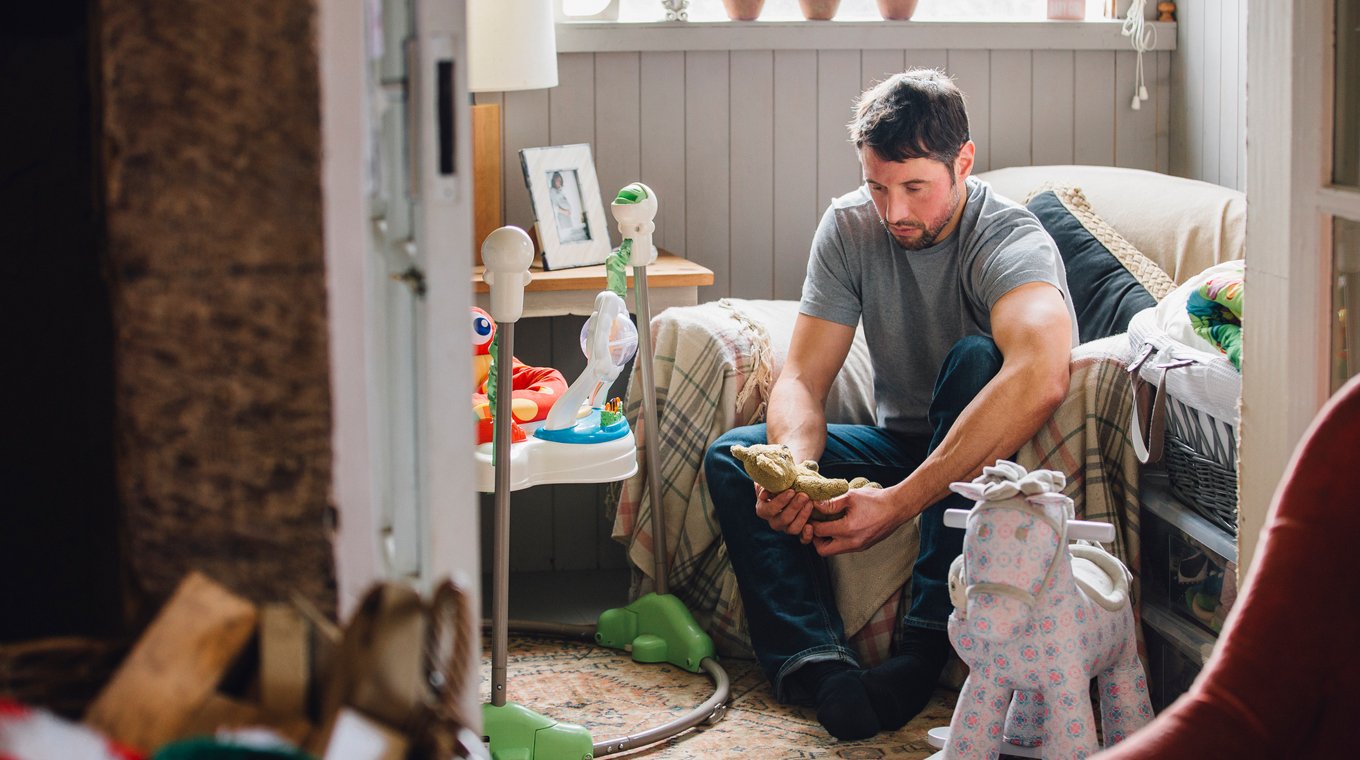
In this article
The loss of a child is one of the most traumatic experiences a parent will ever have to face. If you’ve experienced this heartbreak yourself or know someone who has, you know that the effects are unpredictable and long-lasting. As we enter July — National Bereaved Parents Awareness Month — we have an opportunity to seek out resources to help bereaved parents navigate challenging times, whether for ourselves or our loved ones who have experienced loss.
More from Mom.com: What Is a Bereavement Doula?
July is Bereaved Parents Awareness Month

Recognized annually in July, Bereaved Parents Awareness Month helps to raise awareness about the support needed immediately following loss, and the need for continued support and resources for bereaved parents in the subsequent months and years. Grief is complex and nonlinear; it doesn’t follow a set pattern, as most people move through the stages of grief in a variety of ways.
Bereaved Parents Awareness Month is also a time for parents to keep their child’s memory alive by talking about them, posting their photo across social media, and otherwise reminding others that their child was here and was a part of their lives. Parents who have lost children sometimes feel as though friends and family members will think they’re trying to garner attention by talking about their deceased child; they feel Bereaved Parents Awareness Month gives them “permission” to speak about their loss.
Navigating grief? Parents, it's OK to ask for help

The loss of a child disrupts life’s natural succession, thus making it an incredibly difficult reality to accept. Parents and grandparents are not supposed to outlive the children in their lives.
When navigating loss in this way, parents should always reach out for help from the beginning — from organizing services, arrangements, memorials, and everything in-between, plus keeping up with the day-to-day aspect of running a home or tending to your family. It can seem overwhelming, and asking for help is expected and encouraged. When someone asks if you need anything or tells you to call them “if there’s anything they can do,” take them up on the offer.
Parents who have lost a child will likely experience a wide range of emotions like deep sadness and anger. Learning effective coping strategies is key to ensure that these emotions don’t manifest into depression, anxiety, or other mental health issues. Bereaved parents should seek out support and assistance from a professional therapist to gain healthy coping strategies that will help work through grief. Here are some resources that may be helpful:
Bereaved Parents of the USA
This organization allows parents and families experiencing the loss of a child to have a safe place to connect with others who have experienced similar loss.
Share: Pregnancy and Infant Loss Support
A resource for bereaved parents who have lost a child through pregnancy loss, stillbirth, or during the first few months of life.
The Cope Foundation
A resource for parents, siblings, and families, The Cope Foundation (Connecting Our Paths Eternally) connects parents and families who have lost a child.
Jacqueline Dooley lost her daughter, Ana, to illness at the age of 16. She reminds parents that they should forget everything they think they know or learned about grief, because the rules don’t apply when it’s your child who is gone.
“You will accept the contradiction that joy and sorrow are inextricably linked, twisted together in a brand-new emotion that keeps your child alive and present within your heart,” Dooley wrote for Al Jazeera_. “You will welcome this, in the end. There is no way to go back to the life you once knew because you will understand, at last, that this is what it means to love a dead child.”
How to support bereaved parents

A study from the Institute of Medicine revealed that bereaved parents experience more health complications, depression, poorer well-being, and more instances of suicide than parents who have not experienced this devastating loss.
“To honor bereaved parents, we encourage individuals to reach out to loved ones or members of their communities who have experienced the death of a life,” Massachusetts General Hospital social worker Mary Barber Bussiere advised in an interview published on the hospital’s website. “Ask about their favorite memories with their child, share your favorite memories, and most importantly, say their name,” the bereavement program coordinator suggested.
There are many things you can do to support the bereaved parents in your life. Apart from offering to send a meal or do some cleaning around the home, sometimes a simple phone call or card can let them know you’re thinking of them (and their child).
Mention their child by name. Many grieving parents report that people seem afraid to say their child’s name, but they want you to remember their child. Encourage them to talk and share stories and memories. Most importantly, listen. It’s OK to cry along with them too, but just listening and letting them lead the conversation is the best way to go. Don’t be afraid of a pause in conversation, don’t feel the need to fill in silences with platitudes.




